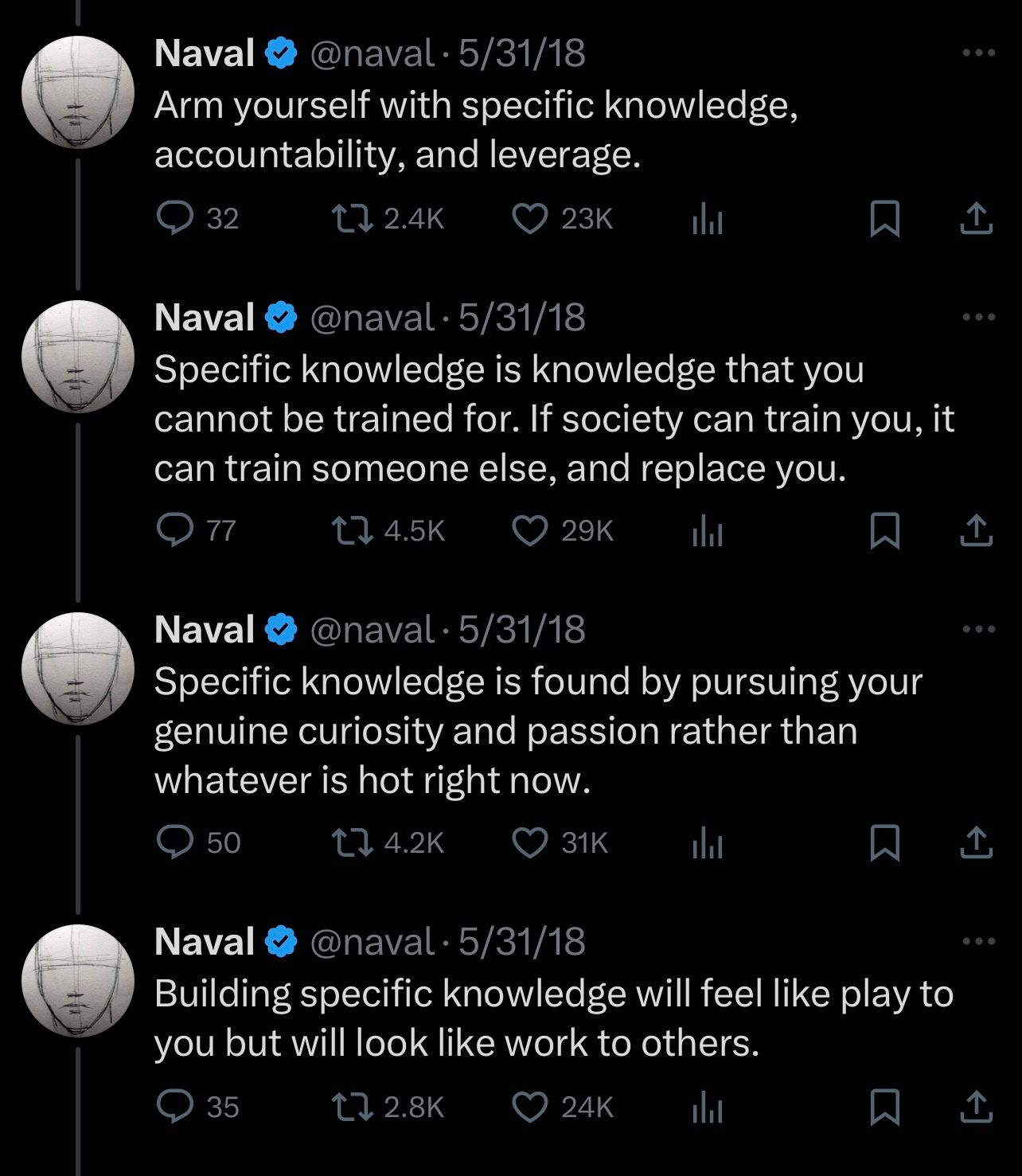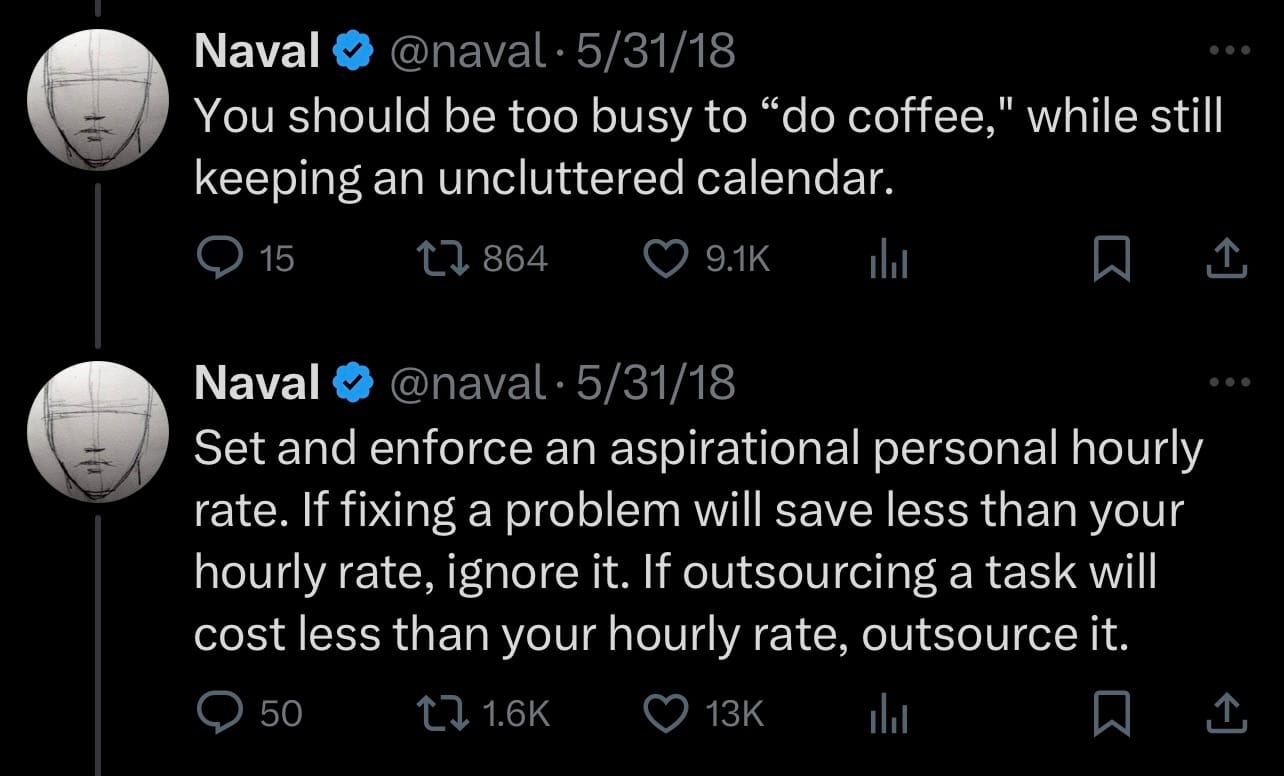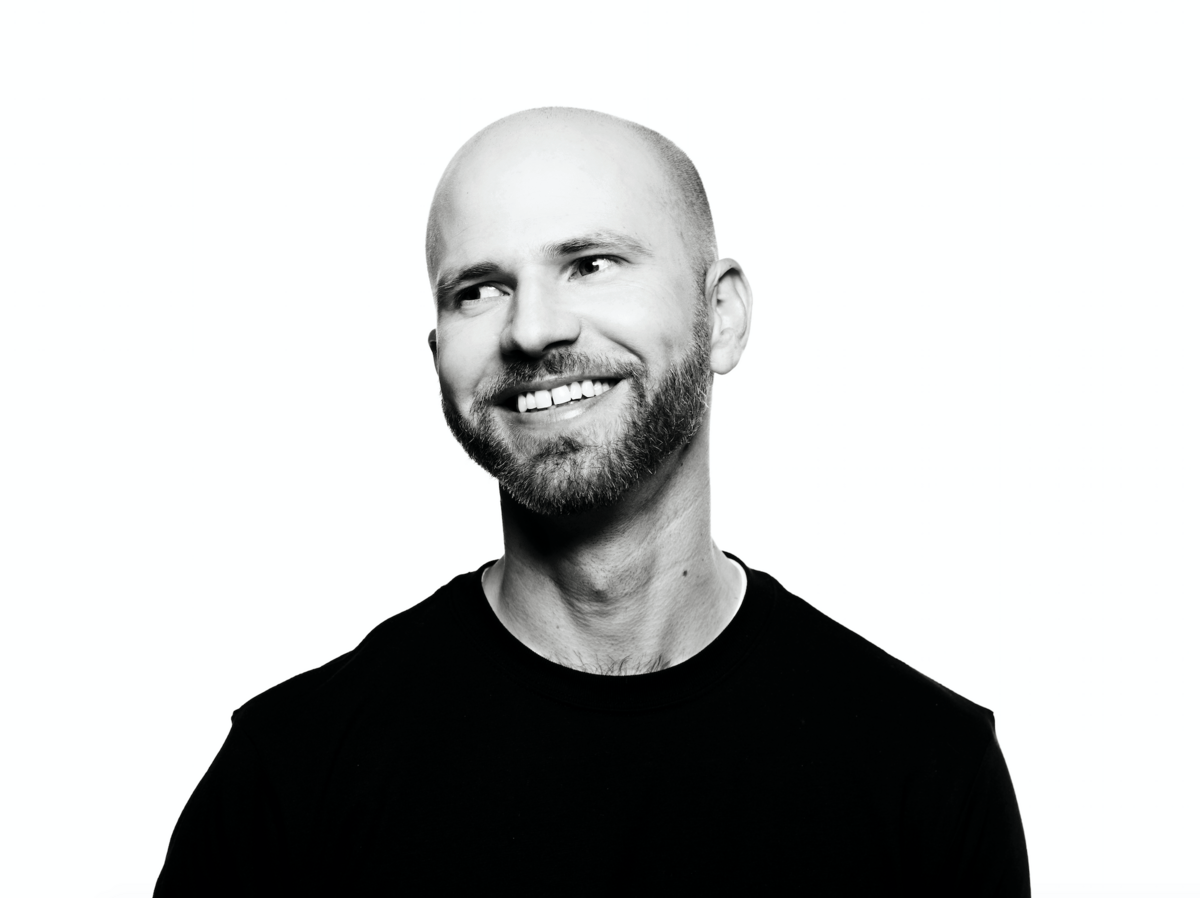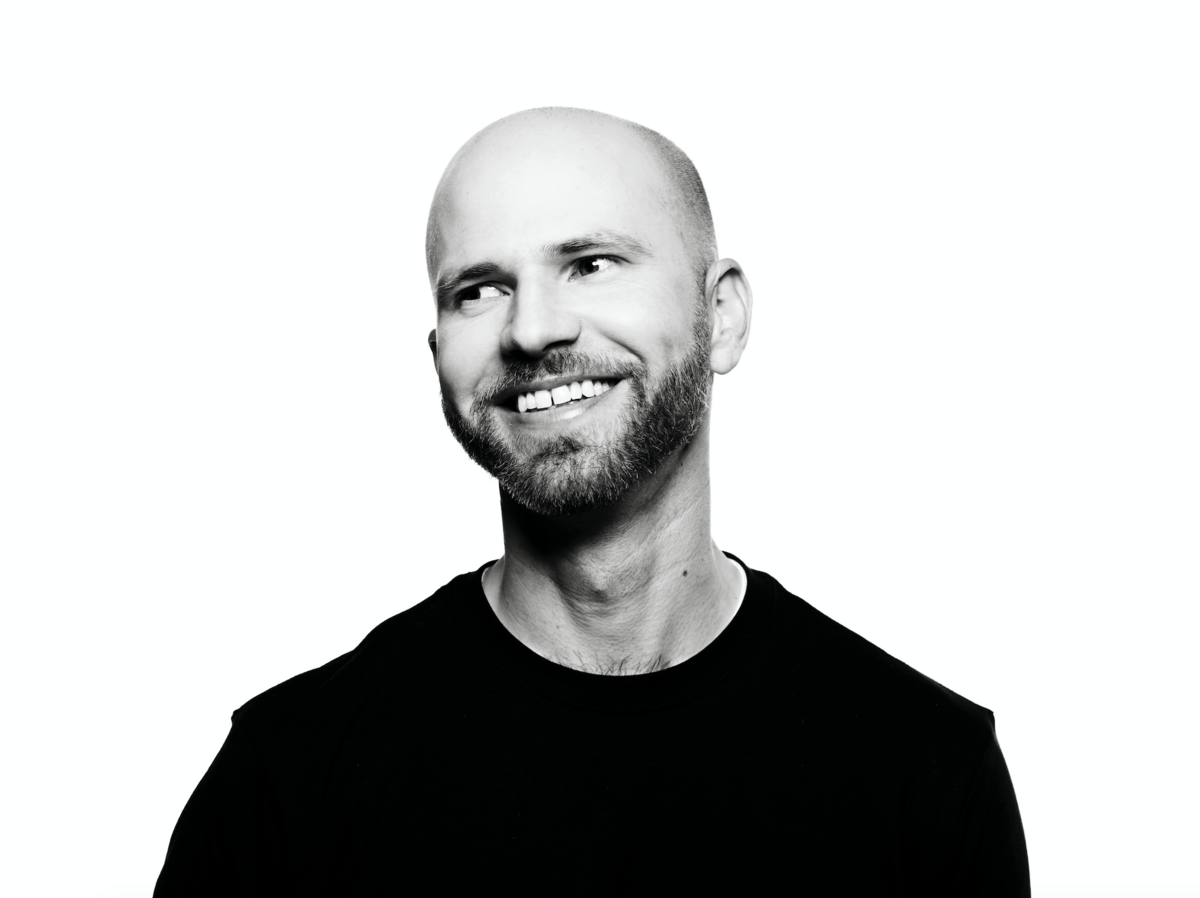Is John Donahoe “The man Who Made Nike Uncool?” Or is the Amazon CEO a bad guy for bringing employees back 5 days a week? I don’t know, but both stories influenced my decision to leave corporate America.

However, what truly crystallized my thoughts on the future of work and finances was a tech billionaire turned meditation monk, Naval Ravikant. His wisdom helped me shape a path toward freedom. He grew up a poor kid with a single mother in NYC, but eventually built a fortune, but more importantly peace of mind.
Here are five ideas that I think about on a regular basis, all of which are drawn from Naval’s tweet thread titled How to Get Rich (Without Getting Lucky). These principles have fundamentally shifted how I view work, wealth, and life.
1. You Can’t Get Rich Renting Out Your Time

One of the most powerful insights from the tweet thread is that you can’t get rich by simply renting out your time, meaning relying solely on a salary.
To build real wealth, you need to own a part of the business. In corporate America, this might mean acquiring stock or stock options, but those are “golden handcuffs.” Meaning, they incentivize you to stay. Trust me, it hurts to walk away from these.
But, it gets easier when you know that…
2. The Internet Has Opened Vast New Career Opportunities

The internet has made this world so small and traditional career paths are becoming less standard. New jobs and opportunities are emerging that would have been unimaginable just a couple of decades ago. Take podcasting, for example—this career didn’t even exist 20 years ago, but now it’s a mainstream profession.
The corporate structures we used to rely on are no longer equipped to handle these new careers. As a result, the way we approach work must evolve. Instead of fitting into predefined roles, we need to seek out specific knowledge, embrace accountability, and leverage our unique strengths to create value in this ever-changing landscape.
3. Specific Knowledge, Accountability, and Leverage

Specific knowledge is something unique to you, typically born from your passions and curiosity. It can be highly technical or creative.
We must also embrace accountability. Corporations are fundamentally structured to avoid accountability, which is why taking responsibility is so rare and so valuable. The people who stand out in any industry are those who are willing to put their name and reputation on the line.

Building a personal brand and having skin in the game is crucial to long-term success. This idea runs counter to the principles of working in a large corporation, where employees are often shielded from the consequences of their actions. In contrast, entrepreneurship rewards those who take responsibility, own their decisions, and create lasting value.
4. Beware of Harmful Addictions—Including Your Monthly Salary
Naval Ravikant quoted something from the book “Skin In The Game” that really stuck with me: “The three most harmful addictions are heroin, carbohydrates, and a monthly salary.” We are so accustomed to the “safety” and predictability of a monthly paycheck that we don’t realize it can be a mind-dulling trap. They’re very safe until the corporation decides it’s moving in a new direction, or that your department is no longer needed.
5. Time Is Your Most Valuable Asset

In the corporate world, time is often wasted on endless meetings, cluttered calendars, and inefficient workflows. I spent years sitting in back-to-back meetings for eight hours a day and I’ll never go back. It’s why The Atlantic just penned an article called “White Collar Work is Just Meetings Now”.
We should be too busy pursuing meaningful work to waste time on things like coffee meetings that don’t add value. At the same time, it’s crucial to keep your calendar uncluttered. Just because you’re busy doesn’t mean you’re being productive. The key is to be intentional about how you spend your time.
Time gets compressed when we value things that are clear to us. For me, it’s my wife, my children, my business, my health & wellness, my close friends…there is not a lot of margin left after this. But, the beauty of life is YOU get to define what’s important for you.
Summary Application:
1. I left a corporate role to build my own business.
2. I utilize zoom, social media & air travel to connect with many people to do great work.
3. My specific knowledge? A career in brand marketing at Nike across many mediums, obsessed with golf, endless curiosity and a desire to help people grow.
4. Accountability & Leverage: I use my name to build a brand primarily through Social Media. This is digital leverage: I make one video that goes across multiple platforms and reaches tens/hundreds of thousands of people across the world. It’s mind blowing to me.
5. I say No to people all day by investing in my Yes’s. I create systems to help people without needing me in person, and systems that help people invest in paying for my time if they really want it.
Ultimately, you have to find what works for you and your family. I’m nowhere near financial freedom, but I’ve got the freedom part down and feel deeply in my bones that I’m on the right path.
I hope you find your path as well. 🙏🏼
Education & Resources:
I became so passionate about Personal Branding that I teach it now.
“Branding + Blessings” a workshop for those who want to serve.
I give an hour of teaching with small breakout sessions designed to allow you to write down your strengths, skills and strategy for your Brand.
The price is $249, but the bigger question is “What’s it costing you to NOT be strategic?”
The Brand Brothers hit BOSTON last week.
Here’s a quick interview I did with Tracksmith’s founder & CEO on the secret to their brand beauty.
Blessings:
Here’s the only longform interview Naval did after his thread went viral. The first 30 min and the last 30 min are the best.
These concepts blessed me and I hope they bless you.




